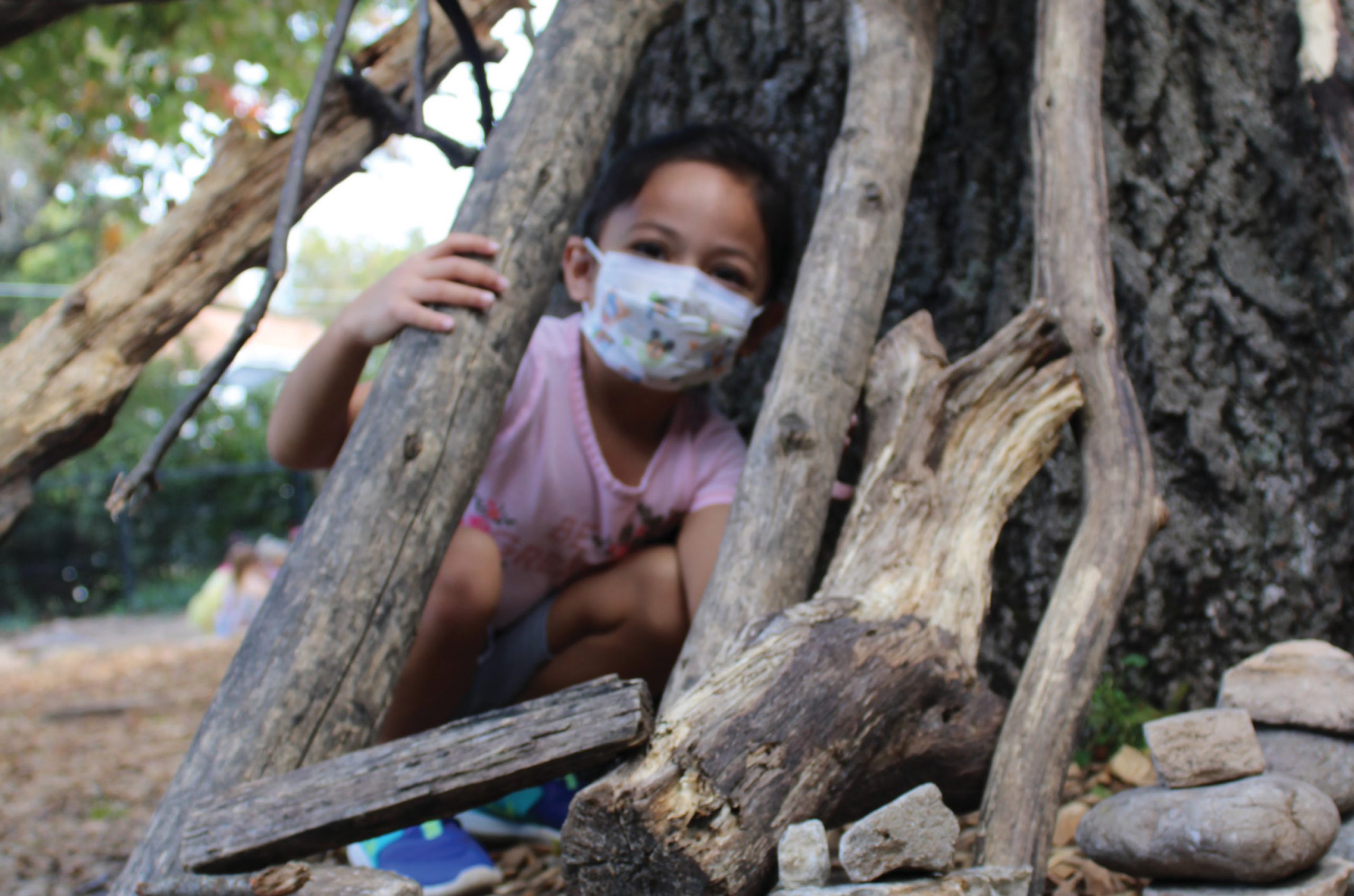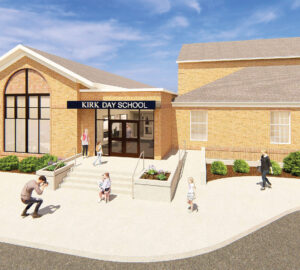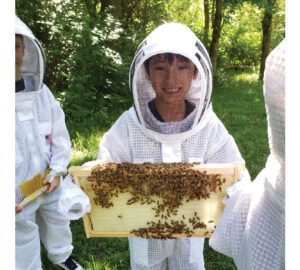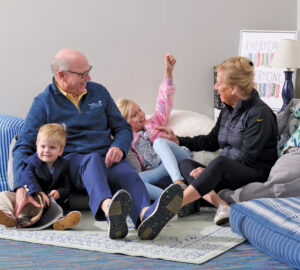At The College School, rigid lesson plans and traditional lectures are not on the curriculum. The independent school in Webster Groves is dedicated to inspiring a lifelong love of learning in students in preschool through grade eight by putting education directly into the hands of its students through experiential learning. Even its youngest learners are empowered and engaged through the implementation of the Reggio Emilia approach to early childhood education.
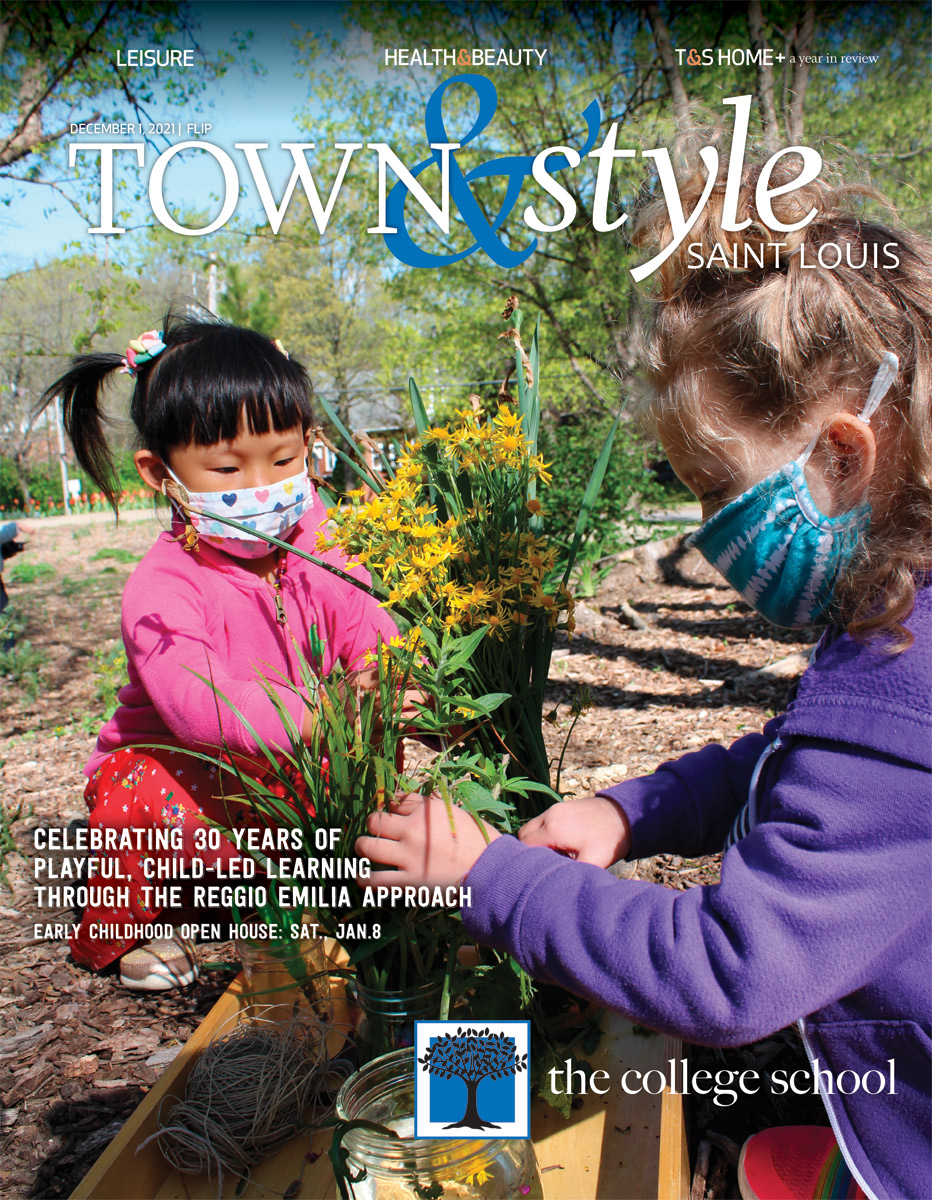 This year is the 30th anniversary of the school’s adoption of the Reggio Emilia approach, which was developed in Italy after World War II. Its principles include allowing children to control the direction of their learning, providing experiences to help them learn and allowing them to express themselves in many different ways. “One of the big ideas of the approach is that young children are very capable and can help direct their education because they have their own interests and curiosities that they want to pursue,” lower division head Penny Allen explains. “Teachers facilitate learning and provide experiences to spark interest. Students feel empowered because they are trusted with decision making and know their opinions are valued.”
This year is the 30th anniversary of the school’s adoption of the Reggio Emilia approach, which was developed in Italy after World War II. Its principles include allowing children to control the direction of their learning, providing experiences to help them learn and allowing them to express themselves in many different ways. “One of the big ideas of the approach is that young children are very capable and can help direct their education because they have their own interests and curiosities that they want to pursue,” lower division head Penny Allen explains. “Teachers facilitate learning and provide experiences to spark interest. Students feel empowered because they are trusted with decision making and know their opinions are valued.”
One of Reggio Emilia’s important concepts is “The 100 Languages,” a reference to the variety of ways children can explore feelings and ideas and connect with others. “There are so many ways a student can express themselves, but oftentimes in education, that can be limited to writing and getting their ideas down on paper,” Allen says. “That approach isn’t necessarily going to work for everyone. When student’s realize they can express their ideas in different ways, it’s very exciting.” Early childhood students at The College School are introduced to a variety of mediums for self expression like drawing, dance, dramatic play and sculpture. Currently, the four- and five-year-olds are exploring photography and what different images can capture.
The environment is another key factor in The College School’s approach to education. Students have small group lessons in the atelier, a studio space where they work with a special instructor known as the atelierista. The atelierista provides creative lessons and opportunities for engagement. “The atelier is where students first encounter techniques like working with watercolor and pastels,” Allen says. “They carry these skills with them throughout the grades and get to enjoy revisiting and using these concepts.” Students’ learning is documented and shared with parents so they can be partners in their children’s education and better understand the school’s approach and how their child is developing.
Students’ engagement with The College School’s experiential approach to education is clear. One example is when the kindergarteners undertook a project to add a stage to the school’s outdoor play area. They took field trips to see outdoor performance spaces like the Kirkwood amphitheater and learned about the components necessary for a stage. Students created their own designs and voted on which concept they wanted to implement. “One of the parents helped build the playspace, and now, kids can perform there,” Allen says. “It was a very authentic project driven by student interest, research and design. It’s not just writing a paper and getting a grade. Learning is something more exciting and meaningful.”
The College School empowers students to engage deeply with a curriculum built on experiential learning. The independent school serves students in pre-kindergarten through grade eight. Its early childhood open house is Jan. 8. Pictured on the cover: Early childhood students engage in hands-on learning. For more information, call 314.962.9355 or visit thecollegeschool.org.
Cover design by Julie Streiler
Cover photo courtesy of The College School
Pictured at top: The College School offers hands-on learning opportunities.
Photo courtesy of The College School





